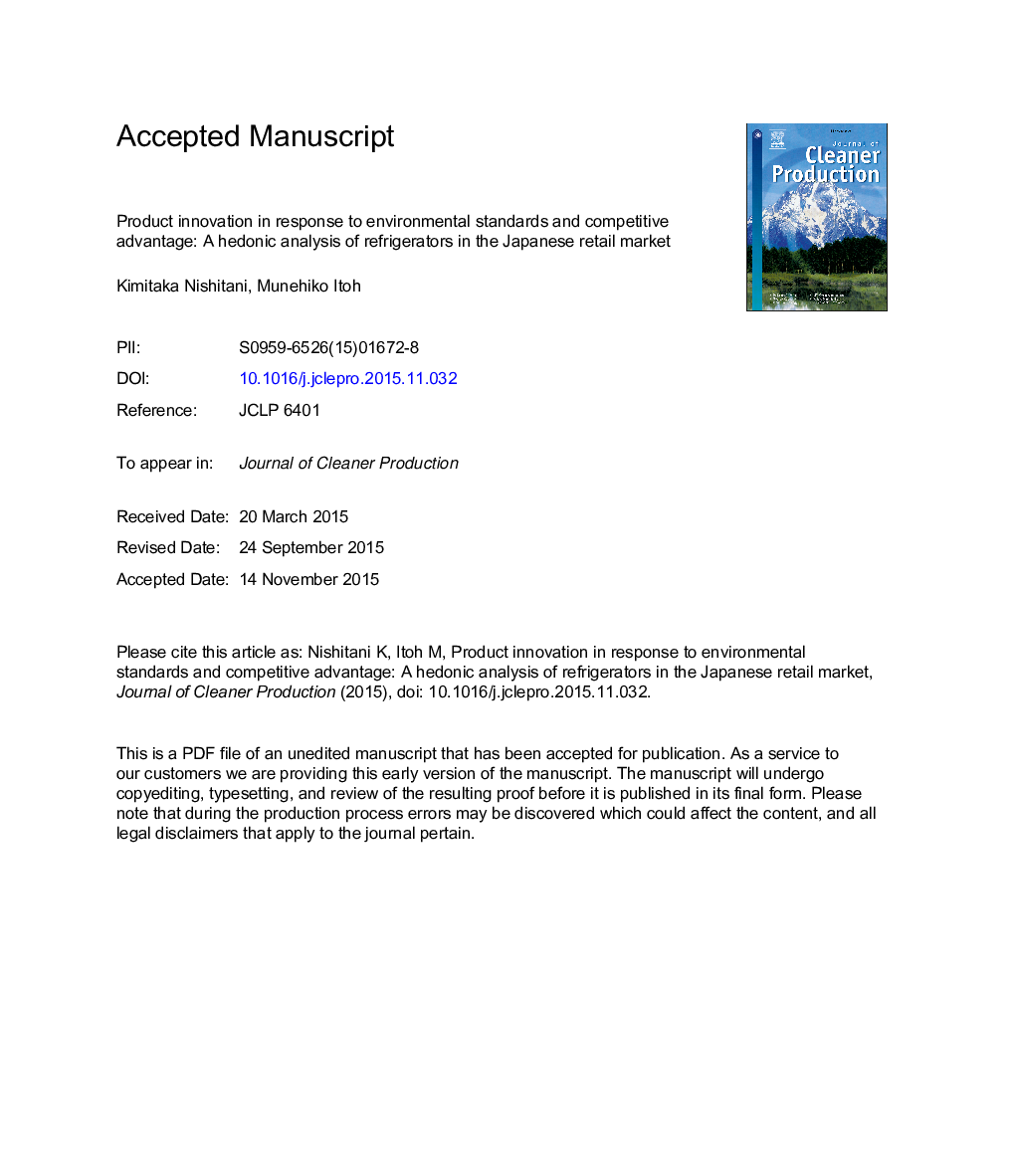| Article ID | Journal | Published Year | Pages | File Type |
|---|---|---|---|---|
| 8103049 | Journal of Cleaner Production | 2016 | 31 Pages |
Abstract
The purpose of this study is to determine whether environmentally friendly attributes that are innovated in response to environmental standards contribute to creating a competitive advantage. Because manufacturers of products with only commoditized value cannot achieve a competitive advantage, they need to add differentiated value including environmentally friendly attributes through product innovation. In this situation, environmental standards have a potential to encourage them to undertake product innovation. Thus, this study analyzes not only whether a product with environmentally friendly attributes that reflect environmental standards receives a price premium, but also whether product commoditization that is associated with drastic price declines has occurred for the product. The methodology for these analyses is a hedonic price regression using data for refrigerators sold in the Japanese retail market during 1998-2012. The main findings are as follows. First, the fundamental value of “refrigerating” has been drastically commoditized in the last 15 years. Second, products that are chlorofluorocarbon-free and energy-consumption efficient reflecting environmental standards have a price premium. Third, the price premium for each attribute has specific trends during the period. These findings support the view that a product's environmentally friendly attributes that reflect environmental standards more or less compensate for the commoditized value through the price premium; therefore, product innovation in response to environmental standards helps create a competitive advantage, especially where product commoditization has occurred.
Related Topics
Physical Sciences and Engineering
Energy
Renewable Energy, Sustainability and the Environment
Authors
Kimitaka Nishitani, Munehiko Itoh,
